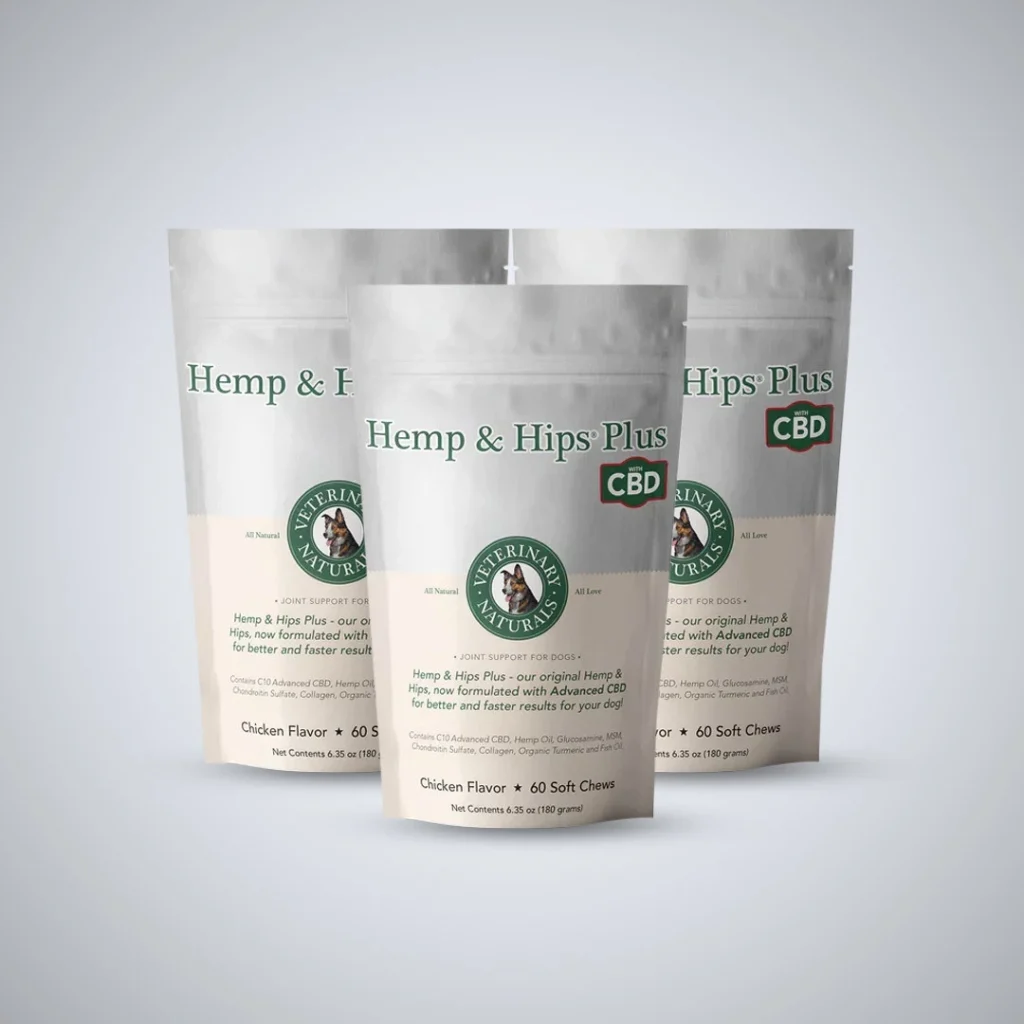As our dogs get older, they are more prone to developing health issues related to their hips and joints. Fortunately, there are a number of vitamins, minerals, and other natural ingredients that help alleviate the pain and improve mobility. Below, we will look at some of the most popular supplements for senior dogs with hip and joint issues.
FAQ
Pet insurance is a health insurance policy specifically for your pet. It helps cover the cost of veterinary care, including accidents, illnesses, and preventive care, depending on the plan you choose.
Now is the best time to get pet insurance because veterinary costs are rising, and having coverage can provide financial peace of mind. Early enrollment often means better rates and coverage before any pre-existing conditions develop.
I tested out dozen of options for my list of the best automatic ball launchers for cats out and available in the market in 2023. I have four cats and each wants my undivided attention, so I really have tried almost ALL available options on the market!
If you’re in a hurry, check out my top picks in the table below.
FYI, this post includes affiliate links. If you decide to purchase anything through these links, I earn a small commission at no extra cost to you.
Things to Consider Before Starting Your Dog on Supplements
Before starting your senior dog on any of these hip and joint supplements, it is important to consult with your veterinarian. They can evaluate your dog’s overall health and joint function and determine whether these supplements are appropriate for your dog. This is vital for any dog (and any supplement), but it’s especially important if your pup is already taking other medications or has certain health conditions (such as heart or kidney disease).
Additionally, choose a high-quality supplement specifically formulated for dogs. Some dogs may have an allergic reaction to these supplements or experience gastrointestinal upset. So it is vital to monitor your dog’s response and adjust the dosage as necessary.
Finally, dogs that are already taking other medications or have certain health conditions may not be good candidates for glucosamine and chondroitin supplementation. So it is important to discuss your dog’s specific situation with your veterinarian.
- Fetch machines
- Blaster
- Sling
- Thrower
- Fetch machines
- Blaster
- Sling
- Thrower

Table of Contents
Glucosamine and Chondroitin
Chondroitin and Glucosamine and are two of the most popular supplements that promote joint health in senior dogs. Glucosamine is a natural compound that helps to rebuild cartilage and lubricate joints. Chondroitin is a naturally occurring molecule that helps to absorb and retain moisture in the joints. It also reduces inflammation and limits the breakdown of cartilage.
When taken together, Glucosamine and Chondroitin may reduce pain and improve mobility. They may also slow the progression of joint damage in senior dogs.

As Dr. Natalia Wilkins, Veterinary Surgeon at The Loyal Vet explains, “Glucosamine helps improve the health of cartilage, and this is especially important for pets with arthritis or other musculoskeletal issues. It can help reduce inflammation and pain, and can even help to rebuild cartilage.”
DVM and Holistic Veterinarian adds, “Not to mention, it has been shown to be very safe in dogs when used correctly. For this reason, I often recommend glucosamine to pet owners whose dogs suffer from arthritis pain.”
If you’re looking for a great high-quality glucosamine and chondroitin supplement, I recommend Hip & Joint by Vet Naturals. I love it because it also includes MSM, Turmeric, Sodium Hyaluronate (HA), and Omega 6 & 3 Fatty Acids.
Quick disclaimer: if you decide to purchase a SpotOn virtual fence for your pup through my referral link, I’ll earn a small commission at no extra cost to you. Also, this is not a sponsored review. I never delete the negative comments and talk about negative things compare to many other reviews.
Due to ongoing supply issues with electronics, the SpotOn fence might not occasionally go out of stock. If you see it available and decide it’s right for you, I recommend grabbing it right away.
Methylsulfonylmethane (MSM)
Methylsulfonylmethane, commonly known as MSM, is a natural supplement that may help reduce joint pain and inflammation in both humans and dogs. MSM is a sulfur-containing compound. It’s found in many foods and plants and is believed to have anti-inflammatory and pain-relieving effects.
MSM is particularly useful for dogs with hip pain, as it can help to reduce inflammation and support joint health. When dogs experience hip pain, it is often due to the breakdown of cartilage in the joint. This can lead to inflammation and pain.
MSM can help to reduce inflammation and promote the growth and repair of cartilage. This, in turn, may help to alleviate pain and improve mobility.
In addition to its anti-inflammatory and pain-relieving effects, MSM may also have other health benefits for dogs. These include improved skin and coat health, increased energy, and improved immune function.
As with any supplement, consult with your veterinarian before giving MSM to your dog. Your veterinarian can help you determine the appropriate dosage for your dog based on their weight and health status.
“MSM…can even help to rebuild cartilage. It can be particularly useful for older dogs who may be more prone to joint pain and arthritis,” says Dr. Jennifer Coates, DVM
Omega-3 Fatty Acids
Omega-3 fatty acids are essential fatty acids that have anti-inflammatory properties. They naturally occur in fish oil, flaxseed oil, and some other plant oils. Most dog owners know that omega-3 fatty acids are great for keeping our pups’ coats shiny and healthy. But, as Dr. Rachel Barrack, DVM, CVA explains, “Omega-3 fatty acids are not only beneficial for a healthy coat and skin, but they can also help reduce inflammation and pain in dogs with arthritis.”
Some dog-safe foods that are rich in omega fatty acids include:
- Fish (salmon, sardines, and tuna are particularly high in omega-3s)
- Flaxseed and chia seeds
- Hemp seeds and hemp oil
- Algae and seaweed
- Pumpkin seeds
- Eggs (particularly the yolks)
- Chicken (especially dark meat)
- Turkey
- Beef liver
- Spinach
When feeding your dog foods that are high in omega fatty acids, it is important to do so in moderation and to choose high-quality sources. Some sources of omega-3s, such as fish, may also contain high levels of mercury or other contaminants, so it is important to consult with your veterinarian before adding these foods to your dog’s diet.

Additionally, some dogs may have allergies or sensitivities to certain foods, so it is important to monitor your dog’s response and adjust their diet as necessary.
Hyaluronic Acid
Hyaluronic acid is a naturally occurring substance found in the body’s connective tissue, including the joints. It is a key component of the synovial fluid that surrounds and lubricates the joints, helping to reduce friction and wear and tear. Hyaluronic acid supplements may also help treat joint pain and inflammation in dogs.
In dogs with hip pain, hyaluronic acid supplements can help to improve joint mobility and reduce pain and inflammation. The supplement works by lubricating the joints and reducing friction, allowing for smoother and more comfortable movement. Additionally, research shows that hyaluronic acid has anti-inflammatory effects, which can help to reduce pain and swelling in the joints.
Hyaluronic acid supplements are typically given as injections or oral supplements, and the dosage and frequency will depend on the severity of your dog’s condition and their overall health status. Your veterinarian can help you determine the appropriate dosage and form of hyaluronic acid supplementation for your dog.
It is important to note that hyaluronic acid supplements are not suitable for all dogs, and may not be recommended for dogs with certain health conditions or who are taking certain medications. As with any supplement, it is important to consult with your veterinarian before starting your dog on hyaluronic acid supplementation.
Perna Canaliculus
“Perna canaliculus is a type of green-lipped mussel that has been shown to reduce inflammation and pain in dogs with arthritis. It can help to slow the progression of the condition and keep your pet comfortable,” says Dr. Rachel Barrack, DVM, CVA
The supplement works by inhibiting the activity of certain enzymes involved in the breakdown of joint tissue, and by providing the body with nutrients that are essential for the growth and repair of cartilage. By reducing inflammation and supporting joint health, Perna canaliculus supplements can help to reduce pain and improve mobility in dogs with hip pain.
Perna canaliculus supplements are available in various forms, including powders, capsules, and chewable tablets. The dosage and frequency will depend on the severity of your dog’s condition and overall health. Your veterinarian can help you determine the appropriate dosage and form of Perna canaliculus supplementation for your dog.
CBD
CBD, or cannabidiol, is a non-psychoactive compound derived from the cannabis plant. It has become a popular natural remedy for a variety of health conditions in both humans and dogs, including hip and joint pain. It works by interacting with the body’s endocannabinoid system, which is involved in regulating pain, inflammation, and other bodily functions.

In dogs with hip and joint pain, CBD can help to reduce inflammation and alleviate pain. It can also help to promote joint health and mobility by supporting the growth and repair of cartilage.
Recent studies have shown that CBD may be effective in reducing pain and inflammation in dogs with osteoarthritis, a common condition that causes joint pain and stiffness. One study found that dogs with osteoarthritis who were treated with CBD oil showed a significant decrease in pain and an increase in activity levels compared to dogs who were given a placebo.
CBD is available in various forms, including oils, tinctures, and treats. The dosage and frequency will depend on the severity of your dog’s condition and their overall health status. Make sure that you choose a high-quality CBD product that is specifically formulated for dog. Human products may contain ingredients that are not safe for dogs.
I recommend Hemp & Hips Plus CBD from Vet Naturals. In addition to C10TM CBD, it also contains most of the other supplements that we’ve discussed above.
Conclusion
In conclusion, there are a number of supplements available to help senior dogs with hip and joint issues. Glucosamine and Chondroitin, Methylsulfonylmethane, Omega-3 Fatty Acids, Hyaluronic Acid, Perna Canaliculus, and CBD have all been shown to reduce inflammation, improve joint function, and protect cartilage from damage. Each supplement has its own unique benefits, so it is important to talk to your vet to determine which one is right for your dog.
FAQs about Hip & Joint Supplements for Dogs
The most important ingredients to look for in a hip and joint supplement for senior dogs are glucosamine and chondroitin. Glucosamine helps to maintain healthy cartilage while chondroitin helps to reduce joint inflammation and pain. Other helpful ingredients include MSM, hyaluronic acid, omega-3 fatty acids, and turmeric, which also provide anti-inflammatory benefits.
The best hip and joint supplement for senior dogs is one that contains a combination of glucosamine, chondroitin, MSM, hyaluronic acid, omega-3 fatty acids, and turmeric. These ingredients have been clinically proven to reduce joint pain and inflammation, help maintain healthy cartilage, and provide anti-inflammatory benefits.
Hip and joint supplements for senior dogs can provide a range of benefits. Glucosamine and chondroitin help to reduce joint pain and inflammation, while MSM, hyaluronic acid, omega-3 fatty acids, and turmeric provide additional anti-inflammatory benefits. These ingredients can also help maintain healthy cartilage and have been clinically proven to be effective in treating and preventing hip and joint issues in senior dogs.
Yes, hip and joint supplements for senior dogs are generally safe when used as directed. The ingredients in these supplements have been clinically proven to be effective in treating and preventing hip and joint issues in senior dogs, and are generally well-tolerated by most dogs. However, it is always best to consult with your veterinarian before giving your dog any supplement.
The most common side effects of hip and joint supplements for senior dogs are mild gastrointestinal upset, including nausea, vomiting, and diarrhea. Other possible side effects include skin irritation or allergies, and in rare cases, liver or kidney damage. It is always best to consult with your veterinarian before giving your dog any supplement.
The frequency of supplementation will depend on the specific supplement you are giving your senior dog. Generally, it is recommended to give hip and joint supplements once or twice daily, but always check the package instructions for the specific supplement you are using. It is also important to consult with your veterinarian before giving your dog any supplements.
Pros and Cons at Glance
- Financial Protection
- Access to Quality Care
- Peace of Mind
- Preventive Care Options
- Monthly Premiums
- Exclusions and Limitations
- Upfront Payments
- Complex Policies
Advantages of Pet Insurance

Pet insurance helps cover the cost of unexpected veterinary bills for accidents and illnesses, protecting you from significant out-of-pocket expenses. Monthly premiums make it easier to budget for your pet’s healthcare needs.
Insurance allows you to afford a wider range of treatments and procedures, including emergency care, surgeries, and specialist consultations. Some plans include coverage for preventive care such as vaccinations, dental cleanings, and annual check-ups.
Disadvantages of Pet Insurance

The need to pay monthly premiums can add up, and if your pet remains healthy, you might feel like you’re not getting your money’s worth. Pet insurance typically does not cover pre-existing conditions, which can be a significant drawback if your pet has ongoing health issues.
Certain policies exclude hereditary or breed-specific conditions, limiting the coverage available. Most pet insurance plans operate on a reimbursement basis, meaning you must pay vet bills upfront and then wait for reimbursement, which can take time.
Author
Ryan
Writer


